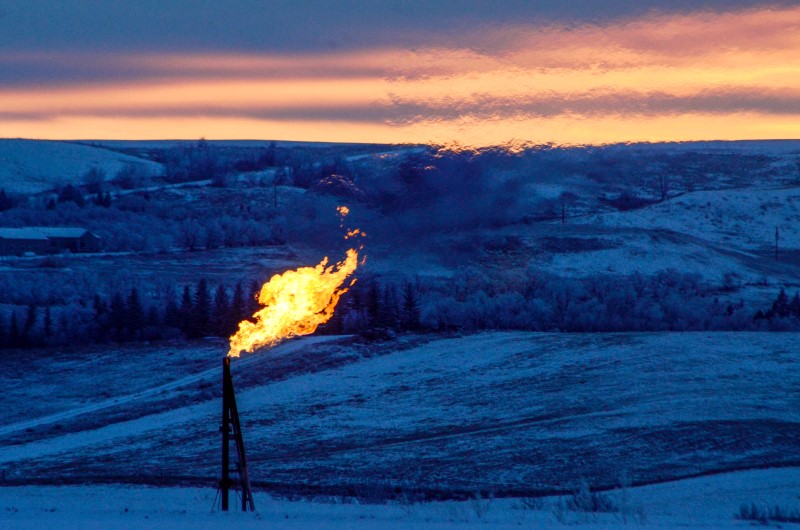(The opinions expressed here are those of the author, a columnist for Reuters.)
By Clyde Russell
LAUNCESTON, Australia, Sept 15 (Reuters) - Australia's conservative government has doubled down on fossil fuels, offering subsidies to both the natural gas and oil refining industries as part of efforts to revitalise the economy after the devastation of the coronavirus pandemic.
Prime Minister Scott Morrison announced a National Gas Development Plan on Tuesday, which includes strategies to create a hub for natural gas, develop gas fields, build and subsidise pipelines and may even see the government weighing in to construct a gas-fired power plant, according to several media reports.
The natural gas plan came a day after Morrison offered incentives worth A$2.3 billion ($1.67 billion) over 10 years to keep the country's four remaining oil refineries open, as well as committing to investing in storage to boost fuel security. from both plans was any commitment to a future powered mainly be renewable energy, putting Morrison's government at odds with bodies such as the International Energy Agency, which have advocated using the coronavirus pandemic as an opportunity to boost moves to a low-carbon future energy system.
It also places Australia's federal government at odds with the governments of the country's six states and two territories, all of which have expressed a commitment to increased clean energy, irrespective of whether they are ruled by Morrison's Liberal Party or the left-leaning Labor Party.
There is a case to be made for subsidising the four oil refineries, owned by BP Plc BP.L , Exxon Mobil Corp (NYSE:XOM) XOM.N , Viva Energy Group VEA.AX and Ampol Ltd ALD.AX , on fuel security grounds.
Allowing them to close would make Australia entirely reliant on imported fuels, and thus vulnerable during times of elevated geopolitical tensions.
By themselves, the refineries aren't major employers, but their value to the economy stretches beyond mere economics and will do for several years to come, even if the most optimistic scenarios on the transition to electric vehicles come to pass.
WHY NATURAL GAS?
The case for a massive expansion and subsidies for the natural gas sector is more troublesome.
Morrison, his ministers and members of a commission of business leaders he set up to chart a recovery from the novel coronavirus, have talked up what they call a gas-led manufacturing recovery.
While details are still sketchy, it appears that the government aims to encourage new gas reserves to be developed, and then subsidise the construction and long-term operation of new pipelines in order to deliver the fuel from the remote basins in the centre of Australia to the populated southeast coastal region.
Building a 1,000 megawatt gas-fired power plant in New South Wales state to replace ageing coal-fired units slated for closure within a few years is a new angle to Morrison's plans.
The risk is that the government locks itself into expensive subsidies for the long term, which do little to boost the economy.
The government has yet to produce modelling to show just how cheap it believes natural gas can be delivered to the two biggest cities, Sydney and Melbourne.
It also has to show what sort of manufacturing it believes will be established on the back of this cheap natural gas.
Industries that use natural gas include cement, chemicals, fertilizers and glass-making.
Does Morrison really expect a flood of investment into these industries on the back of cheap natural gas?
These aren't industries with massive domestic markets in Australia, meaning that they would have to be focusing on exports, and in that case even free natural gas would unlikely be enough to make them competitive in Asia, given Australia's high labour costs and geographic isolation from the region.
Morrison may also be ignoring history, as Australia for many years did enjoy cheap natural gas relative to other economies in Asia such as Japan and South Korea, from its offshore fields in the Bass Strait between the mainland and island state of Tasmania.
That cheap gas certainly helped establish and maintain some industries, but it didn't propel Australia to be a world leader in exports of goods made with natural gas as a major energy feedstock.
If Morrison thinks gas-fired electricity will be competitive, it will take enormous subsidies to be cheaper than a mix of renewables and storage, either battery or pumped hydro.
It's probably fair to say that for the next decade or so gas-fired electricity has a role to play in Australia, mainly as peaking units to meet periods of high demand.
Australia's energy market operator believes that the future of electricity will be based on renewables, and doesn't foresee the need for new baseload gas-fired power plants.
What is hard to fathom is why the federal government is clinging to a vision of a future powered by fossil fuels.
There aren't huge numbers of jobs to preserve, or that are likely to be created, the subsidy costs will be massive and extended and the policies are completely tone deaf to the increasing public concern over climate change. (Editing by Richard Pullin)
